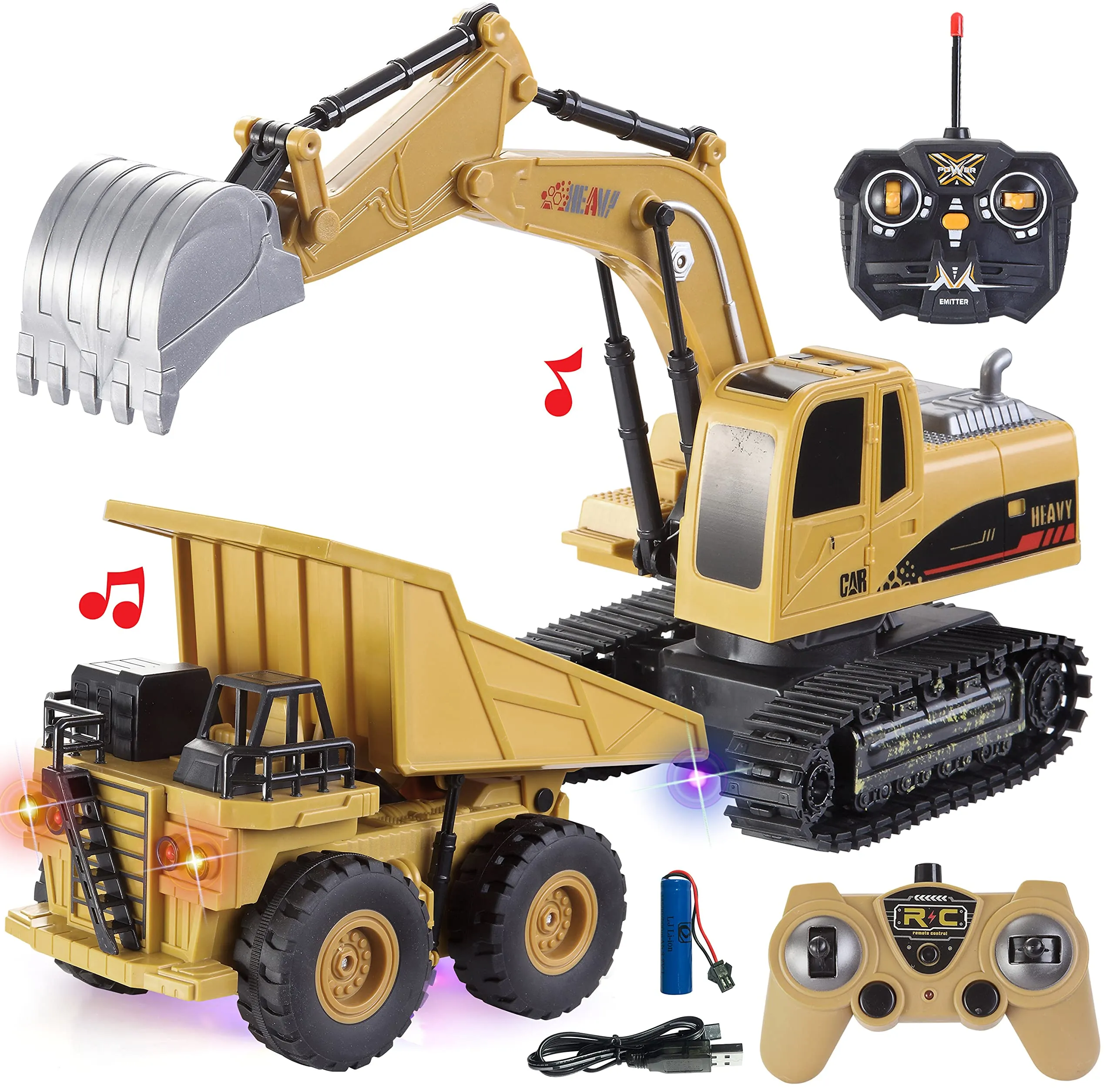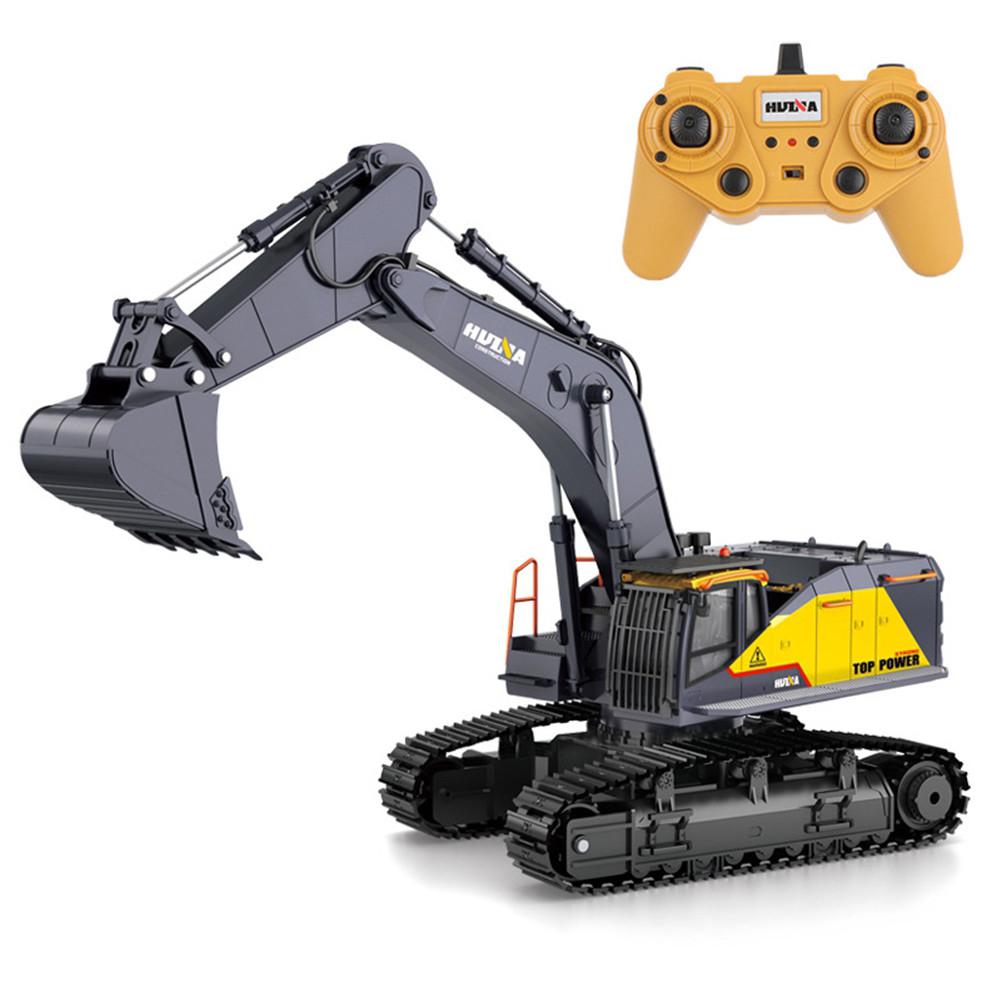Discover the Significance of Excavator in Modern Building Projects
Excavators are crucial tools in contemporary construction projects. Their convenience allows them to do a large range of tasks, from digging and grading to demolition and website prep work. Advanced attributes, such as hydraulic accessories and general practitioners, boost their abilities and efficiency on job sites. As the sector advances, the significance of excavators expands much more. Understanding their function can expose insights into the future of construction practices. What exists ahead for these machines?
The Convenience of Excavators in Various Projects
Although excavators are typically linked with large construction tasks, their convenience allows them to be made use of in a vast array of applications, from domestic landscape design to utility maintenance. In metropolitan settings, excavators can navigate tight rooms to dig structures for homes or install drain systems. Their capacity to do delicate jobs makes them suitable for landscaping tasks, where they can dig deep into for fish ponds or plant trees. Additionally, excavators play a necessary role in utility maintenance, successfully excavating trenches for pipelines or cords without interrupting surrounding locations. In agricultural applications, they assist in land clearing up and dirt preparation. Moreover, their adaptability enables them to be furnished with different attachments, boosting their capability across different tasks. This multifaceted nature of excavators not only simplifies numerous construction processes yet likewise shows their integral role in modern-day framework development and maintenance.
Secret Attributes and Kinds Of Excavators
The discussion on vital functions and types of excavators highlights the crucial characteristics that make these equipments very useful in building. Different excavator kinds, each developed for specific tasks, show their versatility and efficiency across different applications. rc excavator. Recognizing these functions and categories is crucial for maximizing their use in contemporary construction jobs
Excavator Types Review
Excavators play an essential function in modern building and construction, supplying adaptability and performance throughout various tasks. These heavy machinery units can be found in several kinds, each tailored for details applications. The most common kinds consist of crawler excavators, understood for their stability on unequal surface, and wheeled excavators, which provide greater movement on paved surfaces. Small excavators are preferred for limited rooms and small tasks, while long-reach excavators are created for deep digging. Additionally, there are customized excavators, such as hydraulic excavators, which boost power and accuracy. Each kind features unique abilities, making them vital for jobs varying from digging and grading to demolition and product handling. Understanding these variants allows construction specialists to select the appropriate excavator for their job requires.
Key Features Explained
Understanding the vital functions of excavators enhances their efficient application in construction tasks. Excavators are characterized by their effective hydraulic systems, which provide the essential force for digging, lifting, and moving materials. Their expressed arms enable a vast array of motion, helping with exact procedures in confined spaces. Additionally, the range of attachments, such as containers, grapples, and augers, broadens their versatility to fulfill different project requirements. The size and weight of excavators additionally add to their stability and maneuverability on various terrains. Furthermore, improvements in modern technology have caused the assimilation of general practitioner and automation, improving precision and performance in excavation tasks. These functions jointly place excavators as essential tools in contemporary building.
Applications in Building and construction
Changing building sites, excavators play a pivotal duty throughout different applications, varying from domestic structure tasks to large-scale facilities advancements. These flexible machines are geared up for tasks such as digging foundations, trenching for utilities, and website grading. Different kinds of excavators, including crawler, rolled, and mini excavators, provide specific advantages customized to the project demands. Spider excavators stand out in rough surfaces, while wheeled excavators offer wheelchair on paved surfaces. Small excavators are perfect for confined spaces, making them prominent in urban setups. The efficiency and power of excavators considerably speed up building and construction processes, ensuring timely project completion. Their adaptability additionally improves their relevance, allowing building teams to deal with a diverse selection of difficulties efficiently.
Enhancing Efficiency and Efficiency on Work Sites
Making the most of effectiveness and productivity on job sites is a crucial purpose in modern-day building and construction. Excavators play a pivotal function in achieving this goal by simplifying various jobs. Their ability to execute numerous functions-- such as grading, excavating, and lifting-- decreases the need for additional devices, therefore conserving time and resources.Moreover, excavators boost workflow by enabling for faster conclusion of projects. With innovative functions like hydraulic attachments and GPS modern technology, they can carry out accurate procedures that decrease errors and rework. This precision not only boosts the high quality of work however additionally enhances product use, adding to set you back savings.The convenience of excavators allows them to adapt to various site problems, guaranteeing that jobs advance smoothly no matter obstacles. By integrating excavators into construction procedures, groups can greatly boost their total productivity, bring about timely task completion and increased productivity.
Security Advantages of Using Excavators
Excavators significantly enhance safety on construction websites via enhanced driver visibility and decreased manual work threats. By offering operators with a clear sight of their surroundings, excavators assist to avoid crashes and injuries. In addition, the equipment reduces the requirement for workers to take part in harmful hands-on tasks, additionally advertising a much safer work environment.
Improved Driver Presence
Building websites can be chaotic and filled with prospective risks, improved driver exposure plays a vital function in ensuring safety and security when making use of excavators. Modern excavators are developed with huge, unobstructed windows and strategically placed mirrors, allowing operators to preserve a clear sight of their environments (rc excavator). This improved visibility is vital for identifying pedestrians, other machinery, and various obstacles, significantly lowering the risk of mishaps. Furthermore, many excavators integrate innovative innovation, such as sensing units and cameras, to give drivers with extra viewpoints, further improving understanding. The capacity to see more plainly not just help in efficient procedure but likewise fosters a more secure workplace, making it easier for operators to browse intricate building and construction sites without jeopardizing security requirements
Lowered Manual Work Dangers
When manual work is lowered via using excavators, numerous safety advantages arise, significantly improving the wellness of building and construction employees. Excavators reduce the physical pressure linked with hefty training and repeated jobs, successfully lowering the risk of musculoskeletal injuries. By automating procedures such as excavating, grading, and moving materials, they enable employees to keep a safer distance from possible hazards. Furthermore, excavators are outfitted here with sophisticated safety and security attributes, such as rollover protection systems and boosted operator functional designs, which further guard workers on website. The outcome is a considerable decrease in office accidents and injuries, resulting in boosted performance and spirits amongst building and construction teams. Inevitably, the fostering of excavators contributes to a safer and more effective construction environment.
Excavators in Earthmoving and Site Preparation
In modern-day building and construction, a substantial part of earthmoving and website preparation jobs counts on the efficiency and versatility of excavators. These equipments are designed to deal with numerous dirt kinds and terrain, making them important for grading, digging, and trenching activities. Their hydraulic arms can be geared up with different accessories, such as augers and containers, enabling operators to tailor their approach based on particular task requirements.Excavators stand out at moving big volumes of earth swiftly and effectively, which increases the total construction timeline. They can browse limited spaces and challenging websites where typical devices may battle, enhancing productivity. Furthermore, the accuracy of excavators assurances that site prep work complies with rigorous specs, decreasing the danger of mistakes that could lead to pricey rework.
The Role of Excavators in Demolition Tasks
Excavators play a necessary duty in demolition tasks, as they have the power and agility needed to take down frameworks efficiently. Furnished with various accessories such as hydraulic breakers, shears, and grapples, these equipments can adjust to various demolition requirements, whether for small buildings or large commercial sites. Their adaptability enables drivers to deal with intricate jobs while keeping safety and security and precision.In enhancement to their demolition capabilities, excavators promote particles removal, guaranteeing that work sites stay secure and organized. By breaking down frameworks into workable pieces, they permit structured clearing up and recycling of materials, straightening with modern sustainability efforts.Moreover, excavators can access limited areas click and browse unequal terrain, making them important in city demolition tasks. Generally, their durable design and multifunctionality make excavators a crucial possession in the demolition stage of building and construction, contributing significantly to task timelines and performance.


Future Trends in Excavator Innovation and Usage
As the building and construction sector Resources develops, innovations in excavator modern technology are positioned to transform their use and effectiveness noticeably. One significant trend is the assimilation of automation and expert system, permitting excavators to run with very little human treatment. This shift will certainly enhance accuracy in tasks such as grading and trenching, lowering human mistake and enhancing productivity.Additionally, the surge of electrical and hybrid excavators is shaping a much more sustainable construction atmosphere, decreasing carbon emissions and fuel costs. Improved telematics systems are also emerging, enabling real-time surveillance of machine efficiency and upkeep requirements, which can bring about much better operational effectiveness and longer devices lifespan.Moreover, improvements in add-on technology are increasing the adaptability of excavators, allowing them to do a more comprehensive series of jobs. The combination of these patterns demonstrates a future where excavators are smarter, greener, and more versatile, inevitably improving construction job characteristics.
Frequently Asked Inquiries
Just How Do Excavators Compare to Various Other Building And Construction Machinery?
Excavators, defined by their convenience and power, master excavating and earthmoving contrasted to other equipment. Their ability to perform different jobs, including lifting and demolition, makes them crucial in construction jobs, improving overall effectiveness.

What Is the Average Life Expectancy of an Excavator?
The average life-span of an excavator generally ranges from 7,000 to 10,000 operating hours, depending upon maintenance, usage conditions, and version. Correct treatment can prolong this life-span, making sure peak efficiency throughout its operational years.
Exactly How Are Excavators Preserved for Optimal Performance?
Excavators require regular upkeep for peak performance, including regular assessments, fluid checks, filter replacements, and prompt repair services. Executing a precautionary upkeep schedule assists prolong their lifespan and warranties effective operation in different construction atmospheres.
What Are the Prices Related To Renting vs. Purchasing an Excavator?
The costs connected with leasing versus getting an excavator vary substantially. Renting out offers lower upfront expenses however can build up with time, while buying requires a substantial initial financial investment, however offers long-term savings and asset ownership advantages.
What Training Is Called For to Operate an Excavator?
Operating an excavator needs specialized training, usually including security methods, machine procedure methods, and environmental understanding. Qualification programs usually mandate sensible experience, making it possible for operators to manage different tasks efficiently while guaranteeing compliance with industry guidelines. The most typical kinds include spider excavators, recognized for their security on uneven terrain, and rolled excavators, which provide better movement on smooth surface areas. Tiny excavators are preferred for small-scale jobs and limited rooms, while long-reach excavators are created for deep excavating. Furthermore, there are specialized excavators, such as hydraulic excavators, which enhance power and precision. Various kinds of excavators, consisting of spider, wheeled, and mini excavators, supply particular advantages customized to the project requirements. Spider excavators excel in rough surfaces, while rolled excavators offer flexibility on paved surface areas.